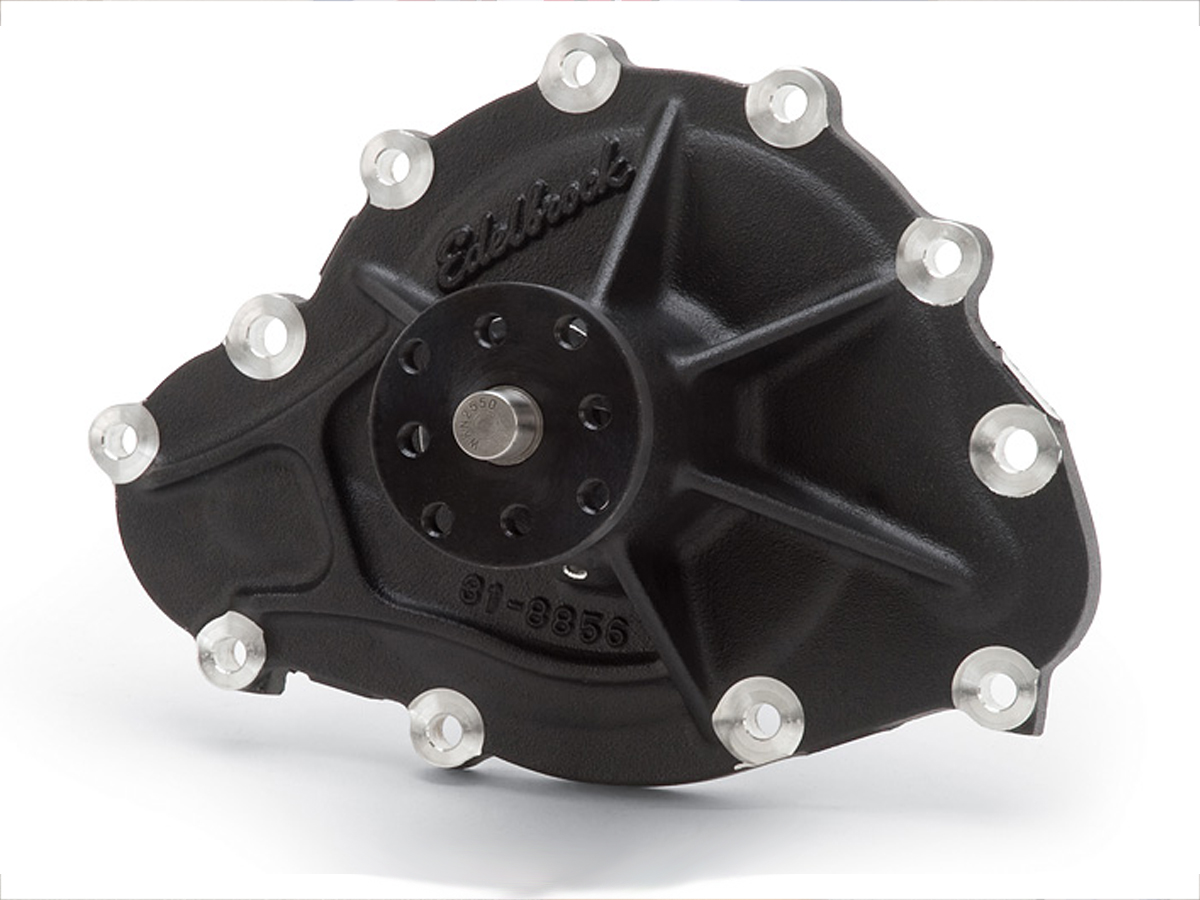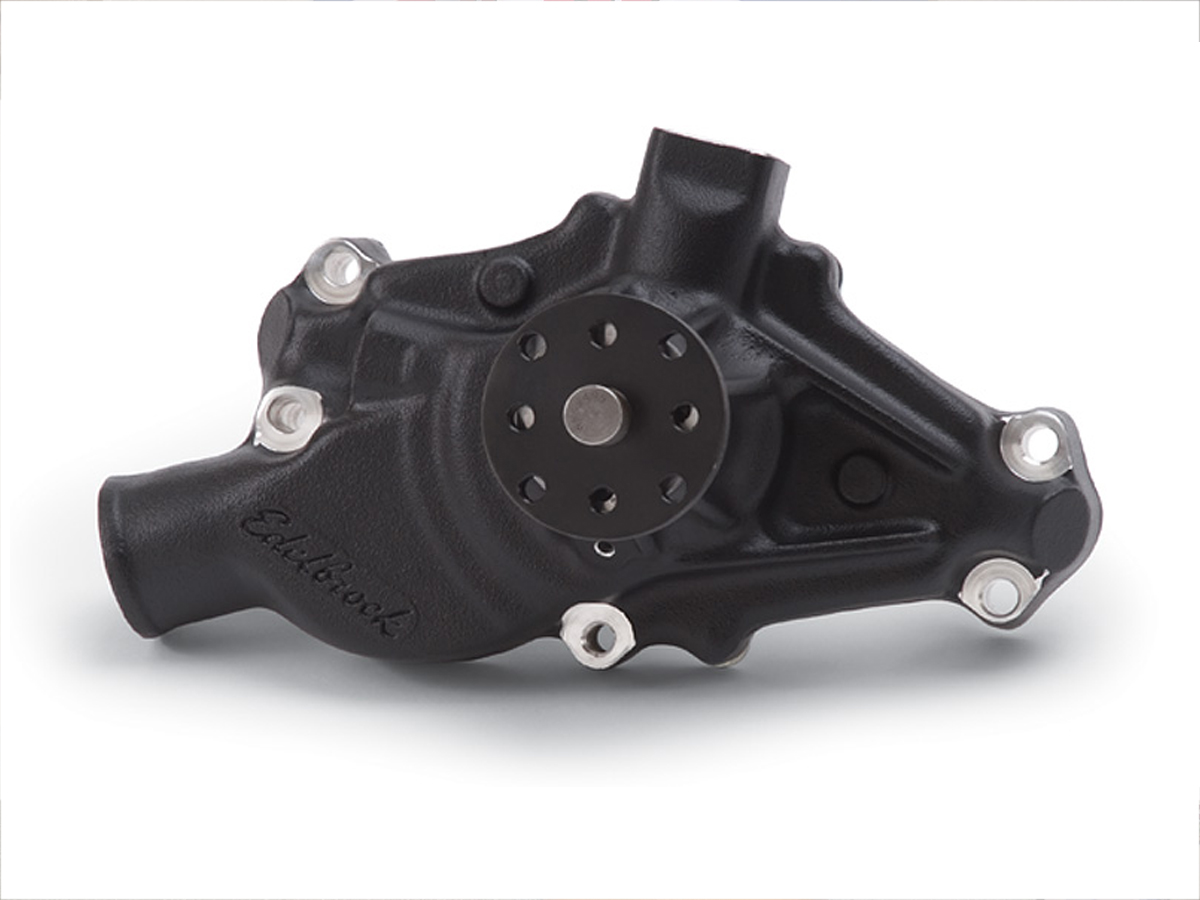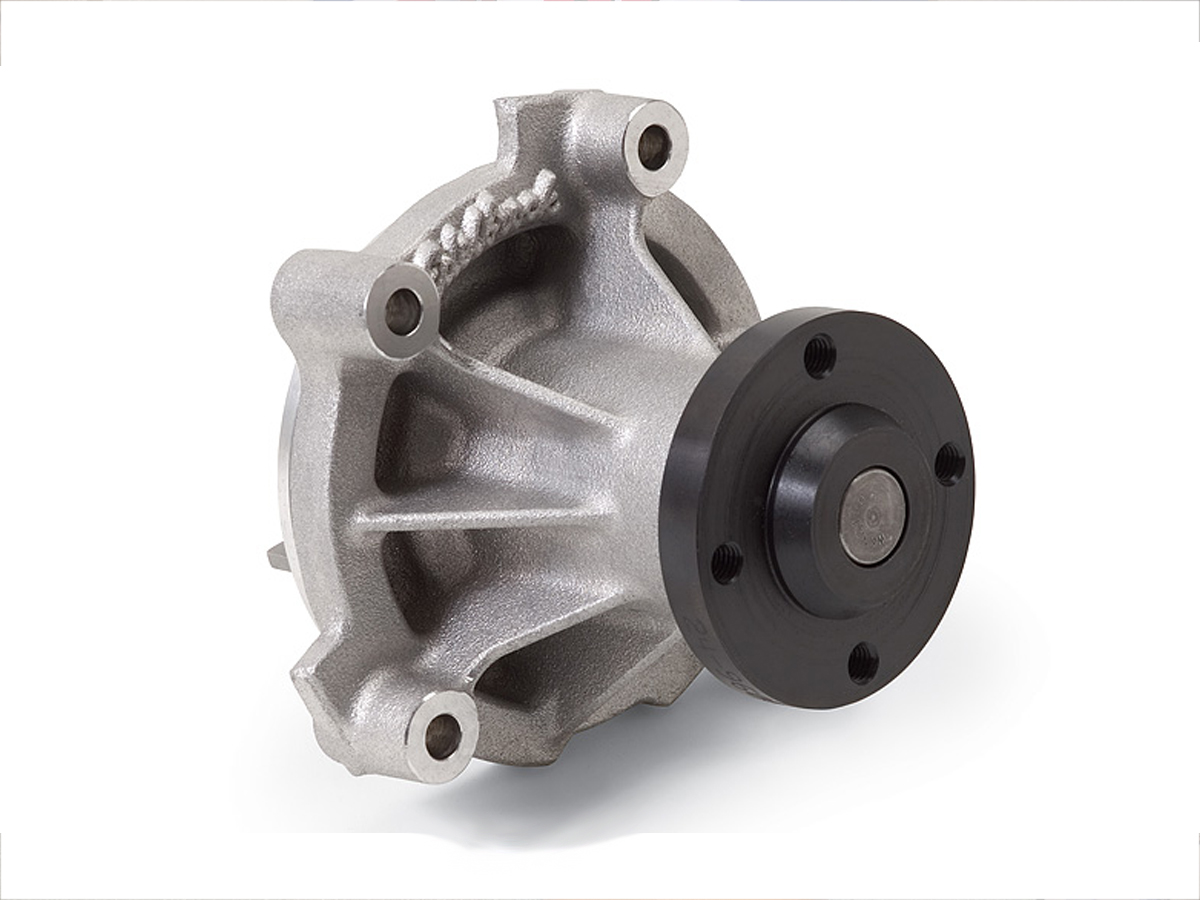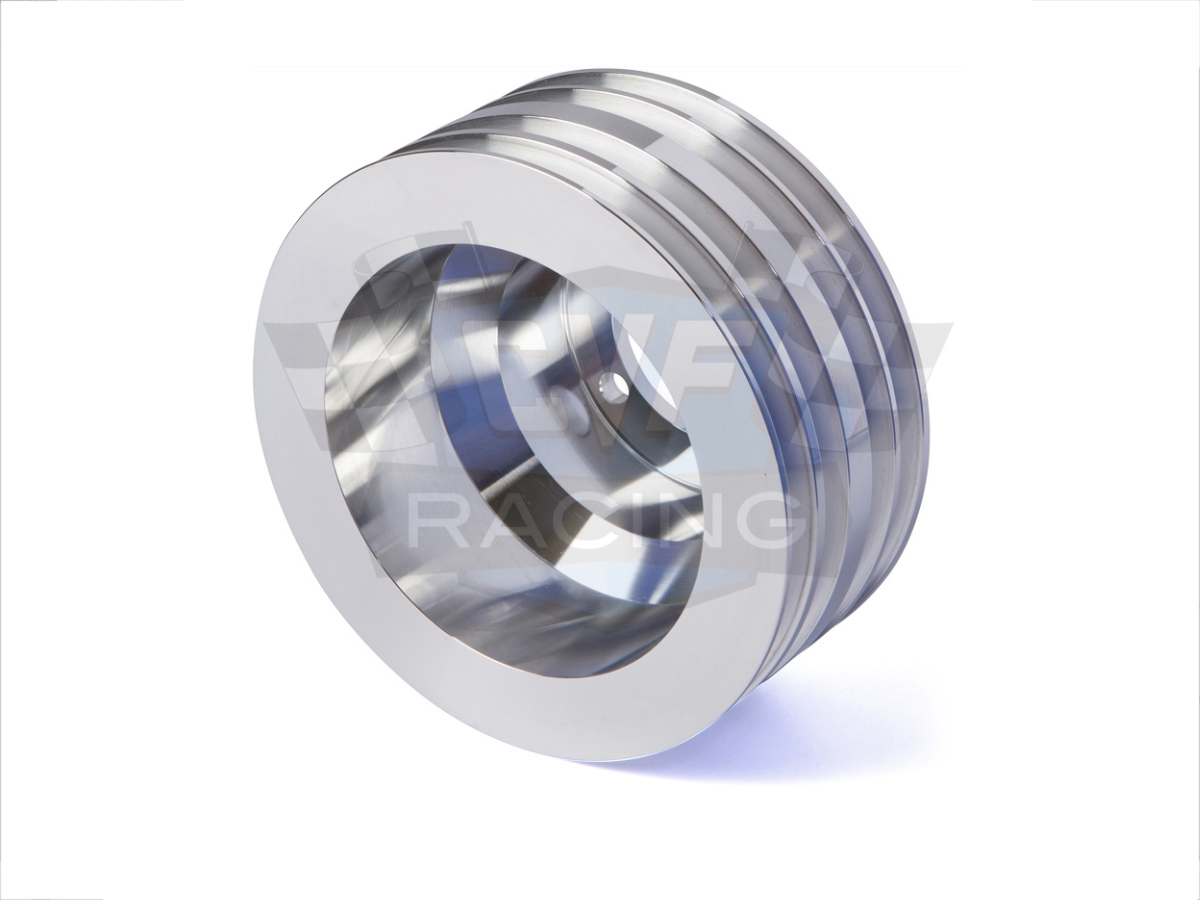We often get calls about overheating, and customers will ask us if a high flow water pump or an overdrive pulley will help. While these components can help with cooling, they’re not solutions for other problems – specifically overheating. A properly tuned cooling system consists of the right size radiator, a properly functioning water pump, and a cooling fan – either mechanical or electric – that will provide enough airflow at idle or low RPM. At speed, the air flowing through your radiator should help keep your engine at operating temperature.
The thing to remember, however, is that horsepower equals heat. So if you’re wondering why your original radiator won’t keep your 500+ horsepower big block cool, it’s because the original radiator fronted a modest 200 horsepower, give or take a few.
With the increase in power comes the necessity for a better cooling system – particularly a bigger radiator. A bigger radiator will have more surface area for cooling, and more capacity for coolant. But that doesn’t mean that the biggest radiator is a solution for overheating, either. If all components are working properly and the radiator is sufficient in size and you’re still overheating, there could be other factors causing this. Some factors include timing, lean running condition, or even a blockage in the cooling passages.
Of course, getting enough air through the radiator is only the first part; the second part of the equation is being able to evacuate that hot air out of the engine compartment instead of letting it all get trapped under the hood – creating a sauna. If you’ve already done some upgrades and it’s not keeping the temperatures down, the overheating problem needs to be properly diagnosed.
Will A High Flow Water Pump Cure My Overheating?
It would be a lie to say that a high flow water pump won’t help reduce cooling temperatures, but it’s not necessarily the truth to say that it will solve overheating issues. A high flow, or high volume water pump will help increase flow, helping to move coolant faster. One manufacturer of high flow water pumps is Edelbrock, so we reached out to our friend Smitty Smith to get the low down on why and how these pumps work.
“Generally speaking, higher flow and higher pressure is beneficial to the cooling system,” he told us. “Higher pressure in particular raises the boiling point of the fluid, thus decreasing the likelihood of vapor forming in the coolant. This results in better cooling, rounder cylinders, cooler valves, etc. Higher flow rates (up to a point) will increase the heat rejection from the radiator.”
With all of these benefits, it made us wonder if these high performance pumps will help with overheating. Smitty said, “If the problem is not coolant flow related, a water pump upgrade will not improve performance significantly. Meaning, if you have a poor fan setup, adding a better water pump will not fix the problem.” But he also says, “The idea that too much water flow causes overheating is a myth.” That means that having a high flow or high volume pump doesn’t cause the water to pass through the radiator too quickly for it to be properly cooled.
Smitty continued, “There is a whole lot of science behind heat exchangers, but the bottom line is that more flow will never cause a decrease in cooling performance. But, there is definitely diminishing returns. Increasing coolant flow is good, but adding excessive additional coolant flow (too much overdrive) will cost horsepower to drive it, but not increase cooling capacity.”
That equates to putting more of a load on the engine, and at some point the additional coolant flow comes at the expense of power. There is also a point where you’ve reached the maximum flow capabilities of the radiator, which means that adding pressure will not continually add flow. At that point, you won’t increase heat rejection, which brings us to the second part of the equation of increasing flow.
Will An Overdrive Water Pump Pulley Increase Cooling Performance?
For a question like this, it almost seems simple that if you move the pump faster, you move the coolant faster. While a high flow and high volume water pump are essentially that same thing, Smitty tells us that the proper term is actually “volumetric flow rate”; it’s simpler to just call it high volume. But can you increase the flow with an overdrive pulley instead of a high volume water pump? There’s a big yes and no on this one, and the answers range across the spectrum depending on how the car is being used.
We spoke to Nate French, owner of CVF Racing, and asked about the overdrive pulleys they manufacture and sell. “An overdrive pulley is great on a hot rod that spends a lot of time at cruise nights, or during parades,” he told us.” At these low RPMs the coolant is limited in flow rates and by adding an overdrive pulley that water pump can flow a little more coolant and to help the cooling system function better. It also helps for those who drive their cars in traffic regularly at lower speeds.”

But Nate also tells us that an overdrive pulley won’t fix an overheating problem. These pulleys help to reduce coolant temperatures, but if you have a problem it needs to be fixed properly. A bandage doesn’t fix a wound, it merely covers it up; likewise, an overdrive pulley and/or a high flow water pump won’t fix your overheating issues. There have been times where a customer had a fresh engine from the shop, and yet found chunks of rust and iron in the radiator because the block wasn’t completely cleaned. Once the block and the radiator were flushed out, the coolant temperatures dropped significantly.
If you’re racing the car or driving at higher speeds, an overdrive pulley tends to do just that: over drive components. Many high performance suppliers will tell you that overdrive pulleys can wear out alternators and steering pumps, too. For that, Nate said that an underdrive pulley will help the longevity of your components. Each performance part serves a purpose for a properly tuned and running engine, they are not designed to fix problems, and will only mask the real problem.
So the bottom line is that the parts mentioned above can improve cooling temperatures, but they’re not solutions to overheating. Proper air flow and coolant flow are vital to maintaining your cooling system. Be sure to have both systems functioning properly, and make sure that the air passing through the radiator has an exit path.




